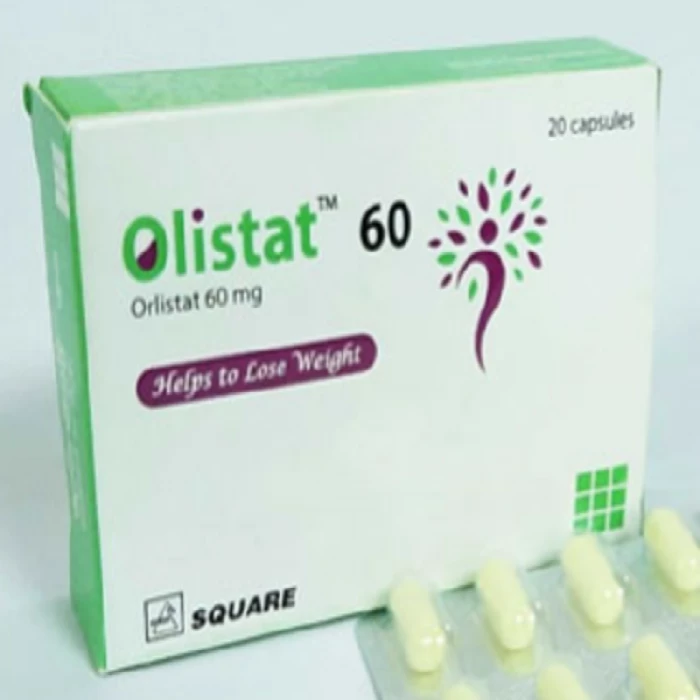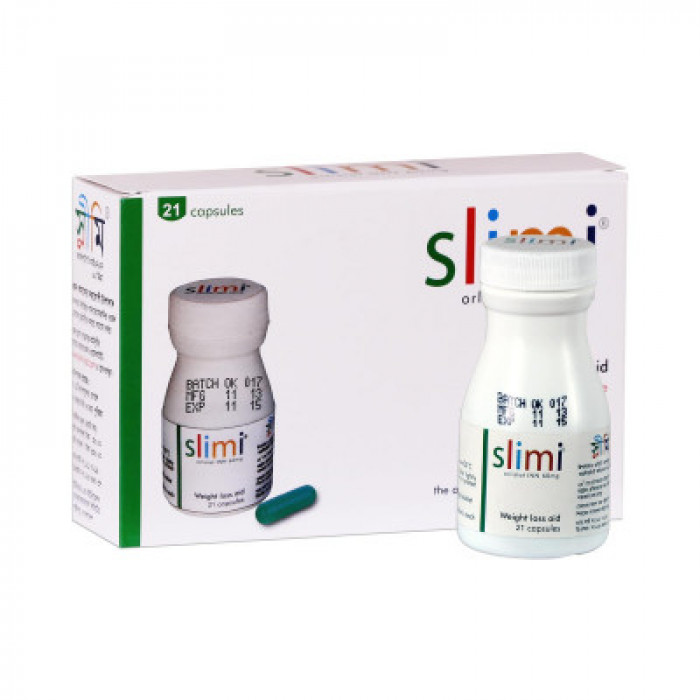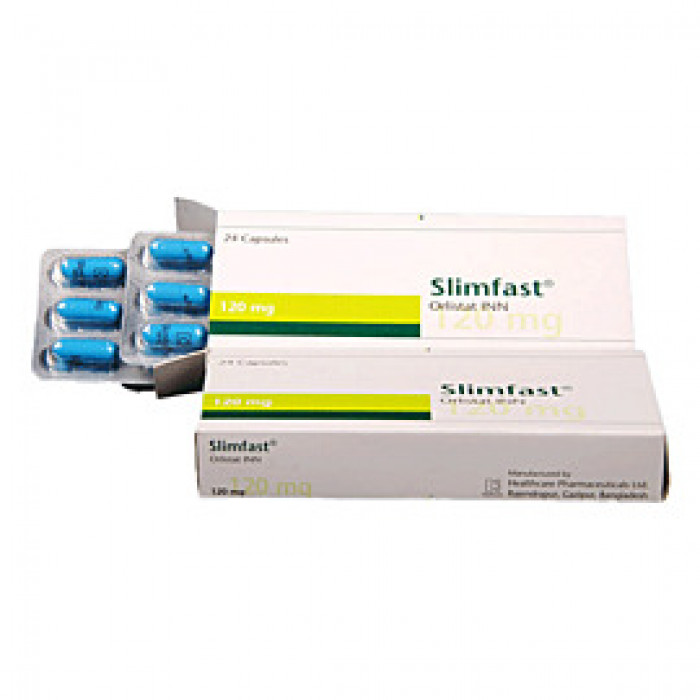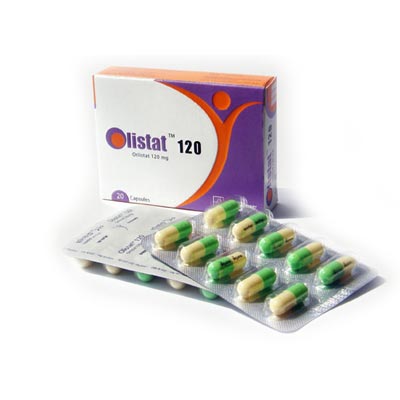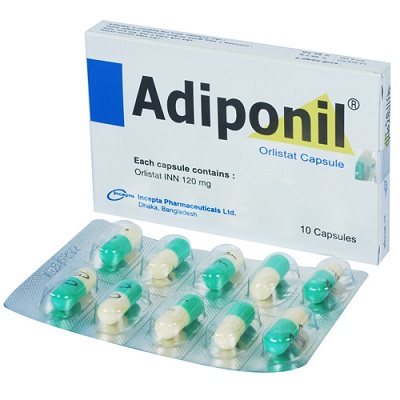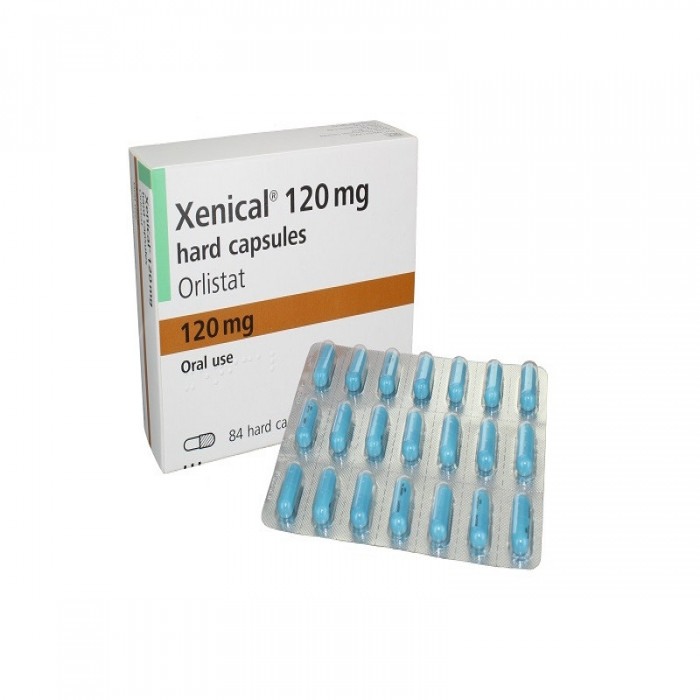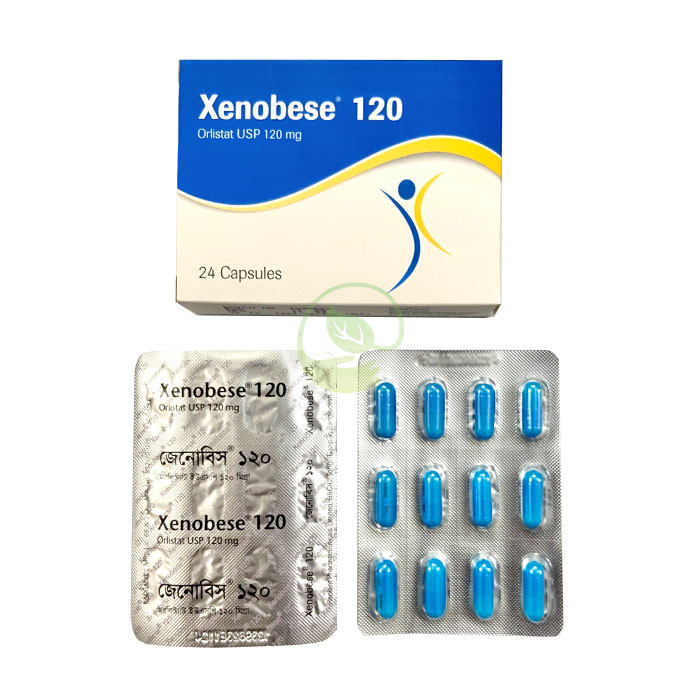
✔ 100% Authentic Product
👁️ Currently Viewing 5766
Xenobese 120mg 24pcs Capsule
Xenobese 120 is indicated for the treatment of obesity.
Discount
Price: ৳ 1,425
MRP:
৳
1500
5%
Off

100% Genuine Products, Guaranteed

Safe & Secure Payments, Always

Fast, Secure & Efficient Delivery

Proper Packaging
 Cash on Delivery - All over Bangladesh
Cash on Delivery - All over Bangladesh Regular Delivery - 12-24 Hours, Dhaka City* Charge Tk.39-59
Regular Delivery - 12-24 Hours, Dhaka City* Charge Tk.39-59 Regular Delivery - 24-48 Hours, Other Cities* Charge Tk.99-110
Regular Delivery - 24-48 Hours, Other Cities* Charge Tk.99-110
 ফ্রি ডেলিভারিঃ - ৯৯৯ টাকা+ অর্ডারে, ঢাকা
শহরে
ফ্রি ডেলিভারিঃ - ৯৯৯ টাকা+ অর্ডারে, ঢাকা
শহরে ফ্রি ডেলিভারিঃ - ২৯৯৯ টাকা+ অর্ডারে, ঢাকার
বাহিরে
ফ্রি ডেলিভারিঃ - ২৯৯৯ টাকা+ অর্ডারে, ঢাকার
বাহিরে
100% Genuine Products, Guaranteed
Safe & Secure Payments, Always
Fast, Secure & Efficient Delivery
Proper Packaging
 Cash on Delivery - All over Bangladesh
Cash on Delivery - All over Bangladesh Regular Delivery - 12-24 Hours, Dhaka City* Charge Tk.39-59
Regular Delivery - 12-24 Hours, Dhaka City* Charge Tk.39-59 Regular Delivery - 24-48 Hours, Other Cities* Charge Tk.99-110
Regular Delivery - 24-48 Hours, Other Cities* Charge Tk.99-110 ফ্রি ডেলিভারিঃ - ৯৯৯ টাকা+ অর্ডারে, ঢাকা
শহরে
ফ্রি ডেলিভারিঃ - ৯৯৯ টাকা+ অর্ডারে, ঢাকা
শহরে ফ্রি ডেলিভারিঃ - ২৯৯৯ টাকা+ অর্ডারে, ঢাকার
বাহিরে
ফ্রি ডেলিভারিঃ - ২৯৯৯ টাকা+ অর্ডারে, ঢাকার
বাহিরে
✅ Description:
- Xenobese 120 is used in the treatment of obesity by blocking the absorption of fats from the small intestines and stomach.
- Orlistat is indicated in conjunction with a mildly hypocaloric diet for the treatment of obese patients with a body mass index (BMI) >30 kg/m² and overweight patients (BMI >28 kg/m²) with associated risk factors such as type II diabetes, hyperlipidemia, and hypertension. Treatment with Adiponil should be discontinued after 12 weeks in patients who have not lost at least 5% of their body weight as measured at the start of drug therapy.
- Obese adolescents should be treated with Adiponil only if an adequate reduction of body weight cannot be achieved by employing diet & increased physical activity. Treatment with Adiponil should be considered, in particular, if complications of obesity are present.
- It should be taken along with food as per the prescribed dose and duration.
- Common side effects include abdominal pain, the presence of fat in the stool, diarrhea, etc.
- Pregnant and breastfeeding women should use it only with a valid prescription.
- It should not be considered a long-term treatment without a doctor's advice.
- The tolerability and efficacy of Orlistat have not been studied in elderly patients or patients with hepatic and/or renal impairments.
Safety Advices

Alcohol
Consuming alcohol with Xenobese 120 does not cause any harmful side effects.

Pregnancy
Xenobese 120 is highly unsafe to use during pregnancy. Seek your doctor's advice as studies on pregnant women and animals have shown significant harmful effects to the developing baby.

Breastfeeding
Xenobese 120 is safe to use during breastfeeding. Human studies suggest that the drug does not pass into the breastmilk in significant amounts and is not harmful to the baby. However, use only if prescribed by a doctor.

Driving
Xenobese 120 does not usually affect your ability to drive.

Kidney
Xenobese 120 is probably safe to use in patients with kidney disease. Limited data available suggests that dose adjustment of Xenobese 120 may not be needed in these patients. However, use caution as the medicine may be associated with the formation of kidney stones in patients with underlying kidney disease.

Liver
Xenobese 120 is probably safe to use in patients with liver disease. Limited data available suggests that dose adjustment of Xenobese 120 may not be needed in these patients. However, consult your doctor before use.
✔️ Uses of Xenobese 120
- Obesity
✔️ Side Effects of Xenobese 120
Common gastrointestinal side effects include oily spotting from the rectum, flatulence, fecal urgency, oily or fatty stool, abdominal discomfort, etc. Rare side effects may include influenza, anxiety, headache, fatigue, and hypersensitivity reactions such as pruritus, exanthema, urticaria, angioedema, and anaphylaxis.
✔️ How does Xenobese 120 work?
Xenobese 120 is a lipase inhibitor that works in the stomach and small intestine by blocking the absorption of fat from food.
✔️ Quick Suggestions:
- Use Xenobese 120 to aid weight loss along with regular physical activity and a healthy diet.
- Take it during or up to 1 hour after each meal.
- Skip your dose if you miss a meal or if your meal contains no fat.
- A multivitamin supplement containing vitamins A, D, and K is recommended when taking Xenobese 120.
- It should not be taken for longer than six months without a doctor's advice.
✔️ Indication of Xenobese 120
- Xenobese 120 is used in the treatment of obesity by blocking the absorption of fats from the small intestines and stomach.
✔️ Pharmacology
Orlistat is a potent, specific, and long-acting lipase inhibitor. It exerts its therapeutic activity in the lumen of the stomach and upper small intestine by forming a covalent bond with the active serine site of gastric and pancreatic lipases. The inactivated enzyme is thus rendered unable to hydrolyze dietary fats in the form of triglycerides into absorbable free fatty acids and monoglycerides. As undigested triglycerides cannot be absorbed, a caloric deficit arises which has a positive effect on weight control. Systemic absorption of orlistat is therefore not needed for the activity. At the recommended therapeutic dose of 120 mg three times a day, orlistat inhibits dietary fat absorption by approximately 30%.
✔️ Dosage & Administration of Xenobese 120
The recommended dose of Orlistat is one 120 mg capsule to be taken immediately before, during, or up to one hour after each main meal. If a meal is missed or contains no fat, the dose of Orlistat should be omitted. Doses of Orlistat above 120 mg three times daily have not been shown to provide additional benefits. The effect of Orlistat results in an increase in fecal fat 24-48 hours after dosing. Upon discontinuation of therapy, fecal fat content usually returns to pretreatment levels within 48-72 hours.
Administration:
- Should be taken with food. Take immediately before, during, or up to 1 hour after each main meal. If a meal is missed or contains no fat, the dose may be omitted.
✔️ Overdose Effects of Xenobese 120
Single doses of 800 mg Adiponil and multiple doses of up to 400 mg three times a day for 15 days have been studied in normal-weight and obese subjects without significant adverse findings. Should a significant overdose of Adiponil occur, it is recommended that the patient be observed for 24 hours. Based on human and animal studies, systemic effects attributable to the lipase-inhibiting properties of Adiponil should be rapidly reversible.
✔️ Interaction
Reduction in cyclosporine plasma levels when Adiponil was coadministered with cyclosporine. Adiponil inhibited the absorption of a vitamin E acetate supplement. The effect of Adiponil on the absorption of supplemental vitamin D, vitamin A, and nutritionally-derived vitamin K is not known. Hypothyroidism has been reported in patients treated concomitantly with Adiponil and levothyroxine. Patients treated concomitantly with Adiponil and levothyroxine should be monitored for changes in thyroid function. Administer levothyroxine and Adiponil at least 4 hours apart. Vitamin K absorption may be decreased with Adiponil. Patients on chronic stable doses of warfarin who are prescribed Adiponil should be monitored closely for changes in coagulation parameters. Convulsions have been reported in patients treated concomitantly with Adiponil and antiepileptic drugs. Patients should be monitored for possible changes in the frequency and/or severity of convulsions.
✔️ Contraindications
Chronic malabsorption syndrome, cholestasis, lactation.
✔️ Pregnancy & Lactation
Orlistat is a Pregnancy Category X drug and is contraindicated during pregnancy. Caution should be exercised when Orlistat is administered to a nursing woman.
✔️ Precautions & Warnings
Organic causes of obesity (e.g., hypothyroidism) should be excluded before prescribing Adiponil. Adiponil and cyclosporine should not be coadministered. Cyclosporine should be taken at least 2 hours before or after Adiponil in patients taking both drugs. Cyclosporine levels should be measured and frequently monitored. The decrease in body weight with Adiponil therapy may be less in type II diabetic patients than in non-diabetic patients. Antidiabetic drug treatment should be closely monitored during Adiponil therapy. Patients should be advised to adhere to the dietary recommendations. The daily intake of fat should be distributed between three main meals. Patients should be strongly encouraged to take a multivitamin supplement that contains fat-soluble vitamins to ensure adequate nutrition. The probability of the occurrence of gastrointestinal side effects may increase when Adiponil is taken with a fatty meal.
✔️ Storage Conditions
Store in a cool & dry place below 30°C, protect from light & moisture. Keep out of reach of children.
✔️
Q:
Q:
Q:
Q:
Q:
Q:
Q:
Q:
⚠️Disclaimer:
At ePharma, we’re committed to providing accurate and accessible health information. However, all content is intended for informational purposes only and should not replace medical advice from a qualified physician. Please consult your healthcare provider for personalized guidance. We aim to support, not substitute, the doctor-patient relationship.




